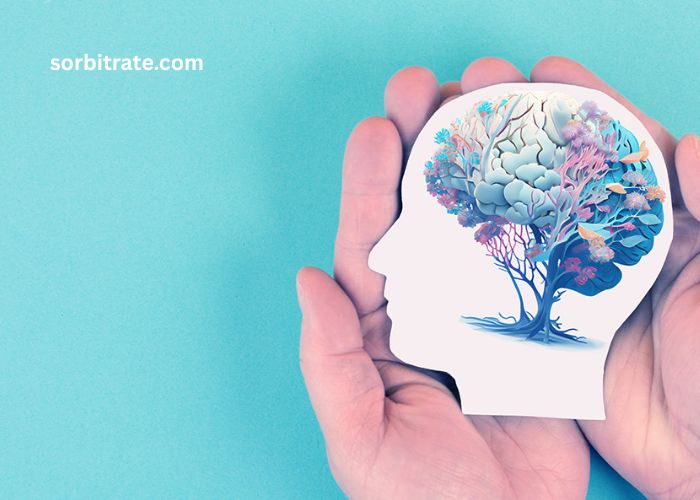In today’s fast-paced and hyperconnected world, the subject of mental wellness has never been more relevant. From workplace stress to anxiety, depression, and emotional burnout, mental health challenges affect millions globally. “Mind Matters” isn’t just a catchy phrase—it’s a truth rooted in science and human experience. Mental wellness shapes how we think, feel, interact with others, and handle life’s challenges. In this article, we’ll explore the science behind mental health, the importance of self-care practices, and ways to support a healthier, more resilient mind.
What Is Mental Wellness?
Mental wellness refers to a state of well-being in which individuals recognize their abilities, can cope with everyday stress, work productively, and contribute to their communities. It’s not simply the absence of mental illness but a broader concept that includes emotional, psychological, and social well-being.
Key elements of mental wellness include:
-
Emotional regulation
-
Positive self-image
-
Effective coping strategies
-
Healthy relationships
-
Purpose and fulfillment
The Science Behind Mental Wellness
Mental wellness has a strong foundation in neuroscience and psychology. Our brain is constantly interacting with our environment, processing stimuli, and generating emotional and behavioral responses. Scientific research has shown that our mental health is influenced by:
-
Brain Chemistry: Neurotransmitters like serotonin, dopamine, and cortisol play key roles in mood regulation and emotional balance.
-
Genetics: Some people may be more prone to anxiety, depression, or other conditions due to genetic factors.
-
Environment: Exposure to trauma, abuse, or chronic stress can alter brain structure and function.
-
Lifestyle: Poor diet, lack of exercise, and disrupted sleep negatively impact brain health and mood.
In recent years, advances in functional MRI scans and cognitive-behavioral research have helped scientists understand how specific parts of the brain—like the amygdala (emotions) and prefrontal cortex (decision-making)—are involved in mental health. This understanding has paved the way for more effective therapies, such as CBT (Cognitive Behavioral Therapy), mindfulness practices, and even neurofeedback.
Why Mental Wellness Should Be a Priority
Many people prioritize physical health, often overlooking the impact mental health has on overall well-being. However, poor mental health can lead to serious consequences:
-
Weakened immune system
-
Chronic diseases (like heart disease or diabetes)
-
Reduced productivity and focus
-
Relationship issues
-
Substance abuse and self-harm
According to the World Health Organization (WHO), depression is now the leading cause of disability worldwide. Additionally, suicide remains a major public health concern, especially among teens and young adults.
Making mental wellness a priority is not only critical for individual well-being—it’s essential for healthier families, communities, and workplaces.
Common Barriers to Mental Wellness
Despite its importance, many people face barriers that prevent them from seeking help or practicing good mental health habits. These barriers include:
-
Stigma: Social and cultural taboos around mental illness still exist in many parts of the world.
-
Lack of access: Many people don’t have access to affordable mental health care.
-
Lack of awareness: People may not recognize the signs of mental health issues until they become severe.
-
Fear or shame: Embarrassment often prevents people from opening up or reaching out.
Breaking these barriers starts with education, open conversations, and supportive communities.
Practical Ways to Improve Mental Wellness
Improving mental wellness doesn’t always require medication or therapy—though those can be important. Often, small daily habits can make a big difference. Here are some science-backed strategies:
1. Practice Mindfulness and Meditation
Mindfulness helps bring awareness to the present moment, reducing anxiety and stress. Even just 10 minutes of meditation per day can help lower cortisol levels.
2. Exercise Regularly
Physical activity releases endorphins, improves sleep, and reduces symptoms of depression and anxiety.
3. Get Quality Sleep
Aim for 7–9 hours of restful sleep per night. Poor sleep disrupts emotional regulation and memory.
4. Connect With Others
Social connection is a powerful antidote to loneliness. Spend time with friends and loved ones, or consider joining a support group.
5. Limit Digital Overload
Too much screen time—especially on social media—can worsen anxiety and comparison. Take digital detoxes or set time limits.
6. Eat a Brain-Healthy Diet
Foods rich in omega-3s, antioxidants, and vitamins (like leafy greens, berries, and fatty fish) promote brain health.
7. Seek Professional Help
Don’t hesitate to consult a therapist or counselor if you’re struggling. Professional guidance can be transformative.
Mental Health in the Workplace
Workplace stress is a growing concern. Employers must recognize that mental health impacts productivity, engagement, and retention. Progressive companies are now:
-
Offering mental health days
-
Providing employee assistance programs (EAPs)
-
Hosting mindfulness or stress-relief workshops
-
Promoting a culture of openness and support
When organizations invest in mental health, they create stronger teams, better leaders, and sustainable growth.
The Role of Technology in Mental Wellness
Technology is playing a dual role in mental health. While overuse can contribute to problems, many digital tools are helping people manage their mental wellness more effectively. Examples include:
-
Mental health apps like Calm, Headspace, and BetterHelp
-
Teletherapy for easy access to counseling
-
AI chatbots that provide 24/7 emotional support
-
Mood tracking and journaling apps
These tools are especially valuable for people who may feel isolated or reluctant to seek in-person help.
Final Thoughts
Mental wellness is not a luxury—it’s a necessity. The science is clear: taking care of your mind improves your quality of life, boosts resilience, and enhances overall well-being. Whether through therapy, mindfulness, social support, or simple lifestyle adjustments, there are many ways to cultivate mental health.
Remember, your mind matters. Start small, stay consistent, and know that seeking help is a sign of strength—not weakness. As we continue to explore the science and care of mental wellness, let’s commit to building a world where mental health is understood, supported, and prioritized.

